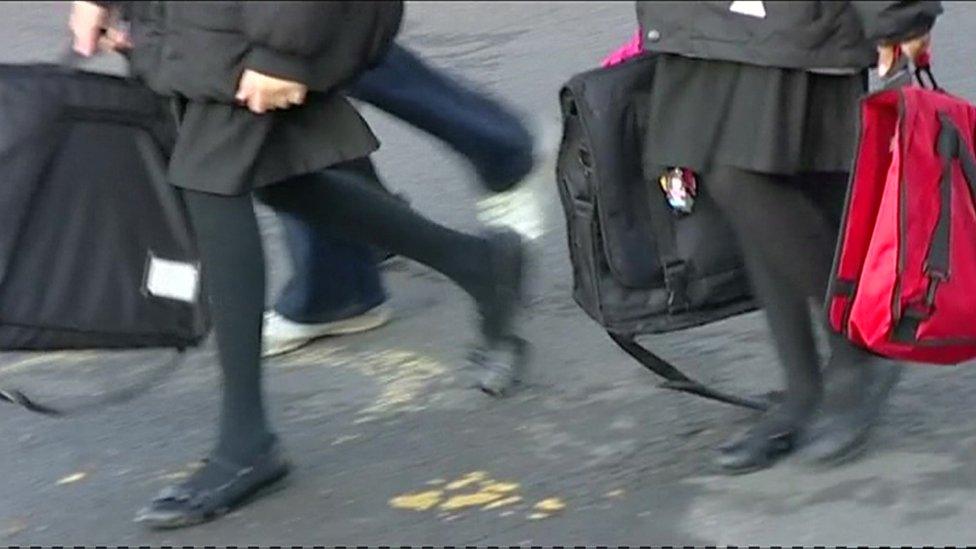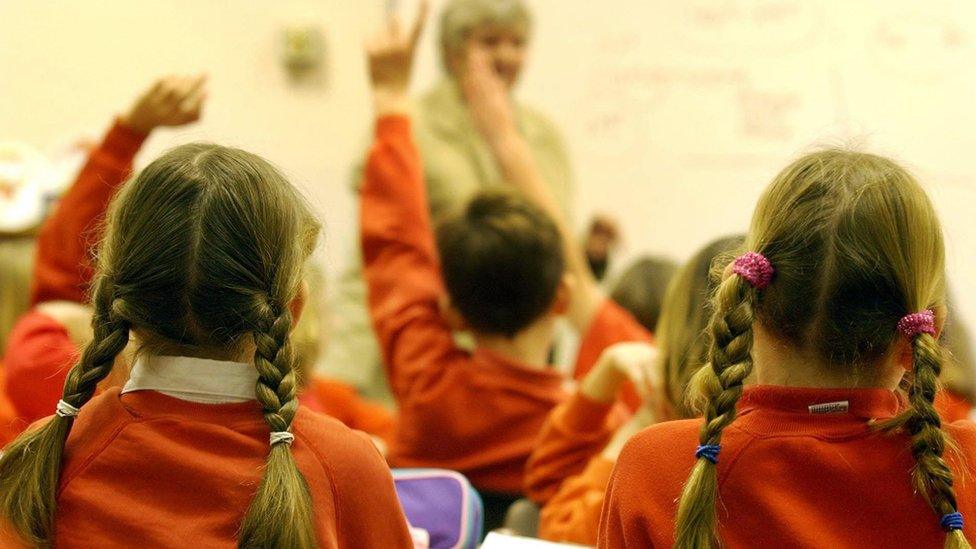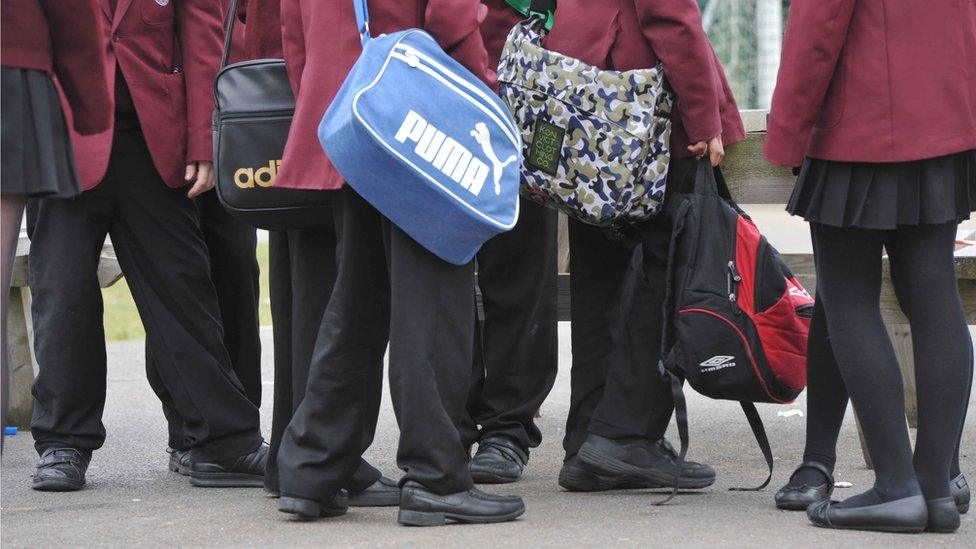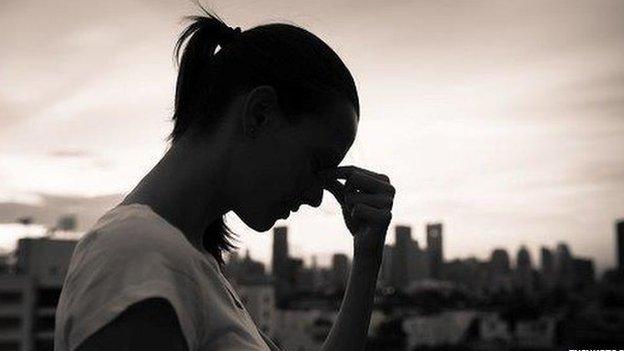MPs seek better plan to fight school sexual harassment
- Published

Sexual harassment of girls is too often accepted as part of school life, say MPs
The government has no coherent plan for tackling sexual harassment and sexual violence in England's schools, say MPs.
Sexual harassment and abuse of girls are too often accepted as part of daily life, according to a Commons Women and Equalities Committee report, external.
Too many schools are failing their pupils, with inconsistent and under-reporting of assaults, says the report.
A government spokeswoman said: "Sexual assault of any kind is an offence and must always be reported to the police."
There is no centralised data collection of sexual harassment and sexual violence in schools, the report notes, so it relies instead on surveys of girls and young women, which consistently report high levels of sexual harassment and violence in schools across the UK.
These include:
In 2015, BBC Radio 5 live Freedom of Information requests showed more than 5,500 alleged sex crimes in UK schools had been reported to police in the past three years
In 2014, 59% of girls and young women surveyed for Girlguiding UK, external said they had faced some form of sexual harassment at school or college in the past year
In 2010, a YouGov poll, external found 29% of 16- to 18-year-old girls had experienced unwanted sexual touching at school
The YouGov poll also found that 71% of girls had heard the terms "slut" or "slag" used towards them at school.
Additional research last year by Girlguiding UK found anxiety about sexual harassment was having a negative impact on three-quarters of girls and young women, affecting what they wore and how they felt about their bodies.
'Deeply troubling'
The MPs heard evidence from young people that many schools were failing to take incidents of sexual harassment and assault seriously.
"Some of the sexual harassment uncovered through this inquiry may not reach the threshold for criminal activity, however, it does create an environment for children and young people that we find deeply troubling," says the report.
"Low level" sexual harassment must be addressed to avoid escalation into criminal abuse, it adds.
The report calls for:
legislation to oblige schools to prevent and respond to sexual harassment and violence, with clear national guidance
schools' responses to such incidents to be assessed in inspections
a statutory requirement for high quality, age appropriate sex education, starting in primary schools

Girls complain of being sent pornographic images while in lessons
To coincide with the report, Girlguiding UK has launched a petition, external calling for "urgent action to end this widespread and often hidden scandal" from education ministers in England, Scotland and Wales.
The petition, from Girlguiding's advocate panel of women aged 14-25, describes their daily experience of sexual harassment: "Groped in the corridor, a hand up our skirts at break time, shown pornographic images in class, or sexual comments about our bodies yelled after us down the corridor."
Maria Miller, who chairs the Commons Women and Equalities Committee, said: "It is difficult to explain why any school would allow girls to be subjected to sexual harassment and violent behaviour that has been outlawed in the adult workplace.
"Despite this, the Department for Education and Ofsted have no coherent plan to ensure schools tackle the causes and consequences of sexual harassment and sexual violence."

Three-quarters of young women say anxiety about sexual harassment has a negative impact on their lives
Jane Lees, of the Sex Education Forum, said compulsory sex education in all schools would teach children acceptable behaviour and reduce sexual violence and coercion.
National Union of Teachers general secretary Kevin Courtney urged the government to "provide real leadership" on the issue.
And Chris Keates, general secretary of the NASUWT teachers' union, said failure to act would have long lasting consequences for gender equality.
Ministers promised to consider the report's recommendations carefully.
"Schools should be safe places and fortunately crime is rare, but no young person should suffer harassment or violence," said the government spokeswoman.
"We trust teachers to promote a culture of tolerance in the classroom and to take swift action to deal with this sort of behaviour.
"This is backed up by mandatory sex and relationship education in all maintained secondary schools."
Meanwhile, a Bristol University review of sex education in 10 countries over 25 years, published online by BMJ Open, external, has said it is too often "negative, heterosexist and out of touch", with poorly trained and embarrassed teachers.
- Published13 September 2016

- Published13 September 2016

- Published8 January 2016

- Published6 September 2015

- Published24 August 2015

- Published29 November 2013
